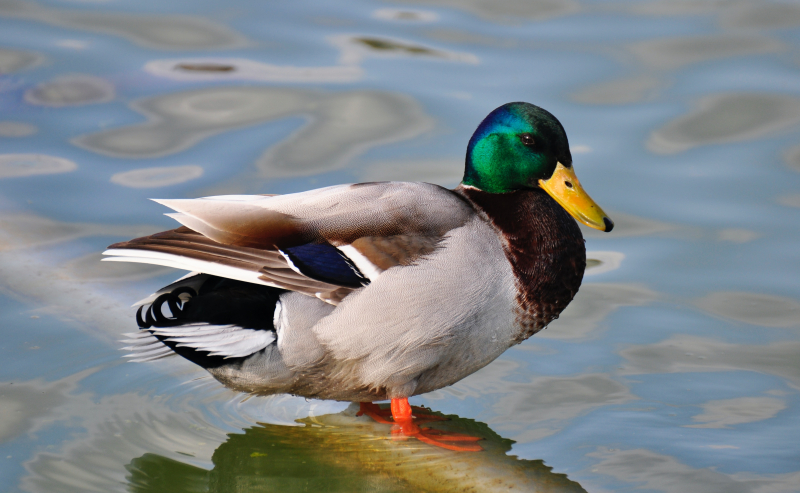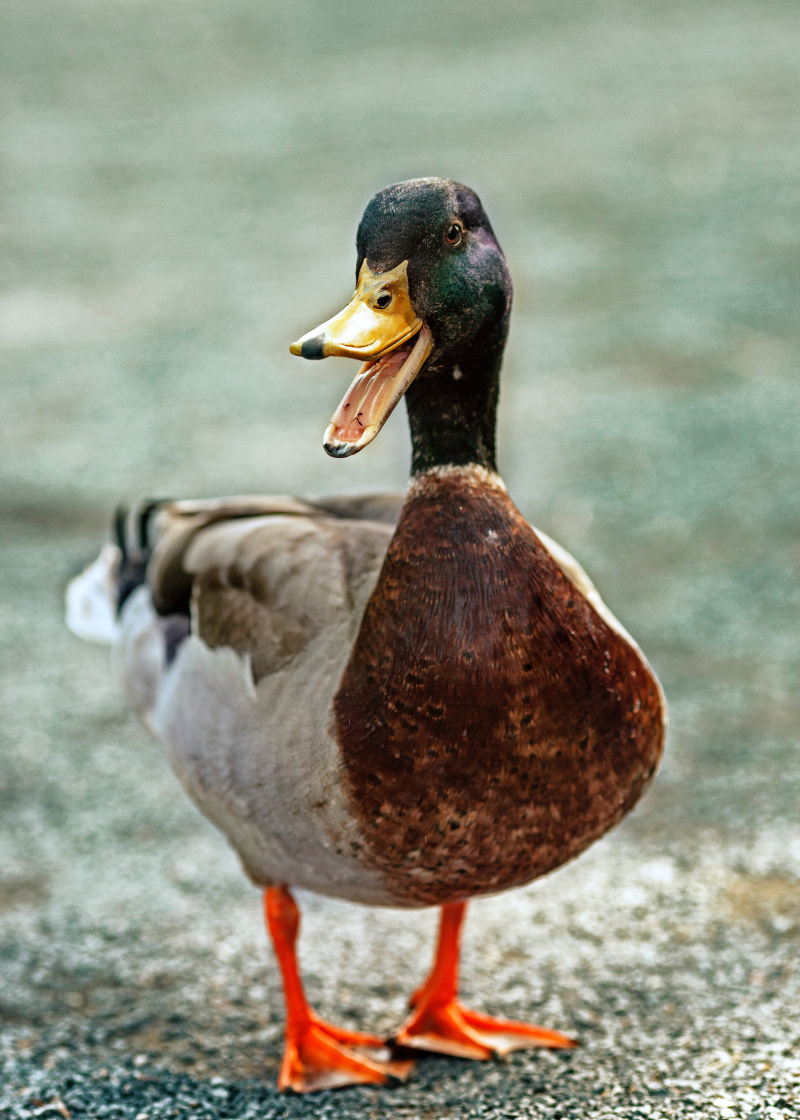Duck
Ducks, members of the Anatidae family, are a diverse and widespread group of waterfowl known for their distinctive characteristics, adaptability, and ecological importance. Found in a variety of habitats, from freshwater lakes and rivers to coastal estuaries, ducks are a familiar and cherished part of the avian landscape worldwide.
One of the defining features of ducks is their distinctive webbed feet, an adaptation for efficient swimming. Their bodies are streamlined, with waterproof feathers that keep them buoyant and well-insulated in aquatic environments. Ducks come in an array of sizes, shapes, and colors, reflecting the diversity within the family. From the small, brightly colored teal species to the larger and more subdued mallards, ducks exhibit a wide range of plumage variations.
Ducks are omnivores with a varied diet that includes aquatic plants, insects, small fish, and crustaceans. Their feeding behavior often involves "dabbling," where they tip forward in the water, reaching submerged vegetation and invertebrates with their bills. Diving ducks, on the other hand, dive beneath the water's surface to forage for food. This diversity in feeding strategies allows ducks to exploit different niches within their habitats.
The social structure of ducks varies among species. While some are more solitary, others form large flocks, especially during migration. Migratory behavior is a notable aspect of duck biology, with many species undertaking long journeys between breeding and wintering grounds. These migrations play a crucial role in the distribution of nutrients, contribute to genetic diversity, and have cultural significance in many regions.
Ducks are also known for their quacking calls, although the vocalizations can vary widely among species. These calls serve various purposes, including communication within the flock, establishing territory, and signaling danger. Each species has its unique vocalizations, contributing to the rich auditory tapestry of wetland environments.
Due to their ecological importance, ducks play a key role in maintaining the balance of aquatic ecosystems. They contribute to nutrient cycling by consuming and excreting organic matter, help control insect populations, and disperse seeds through their movements. Additionally, ducks are a valuable resource for humans, providing a source of meat, eggs, and feathers.

















